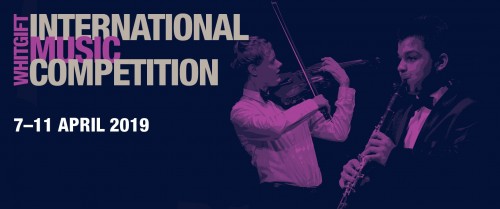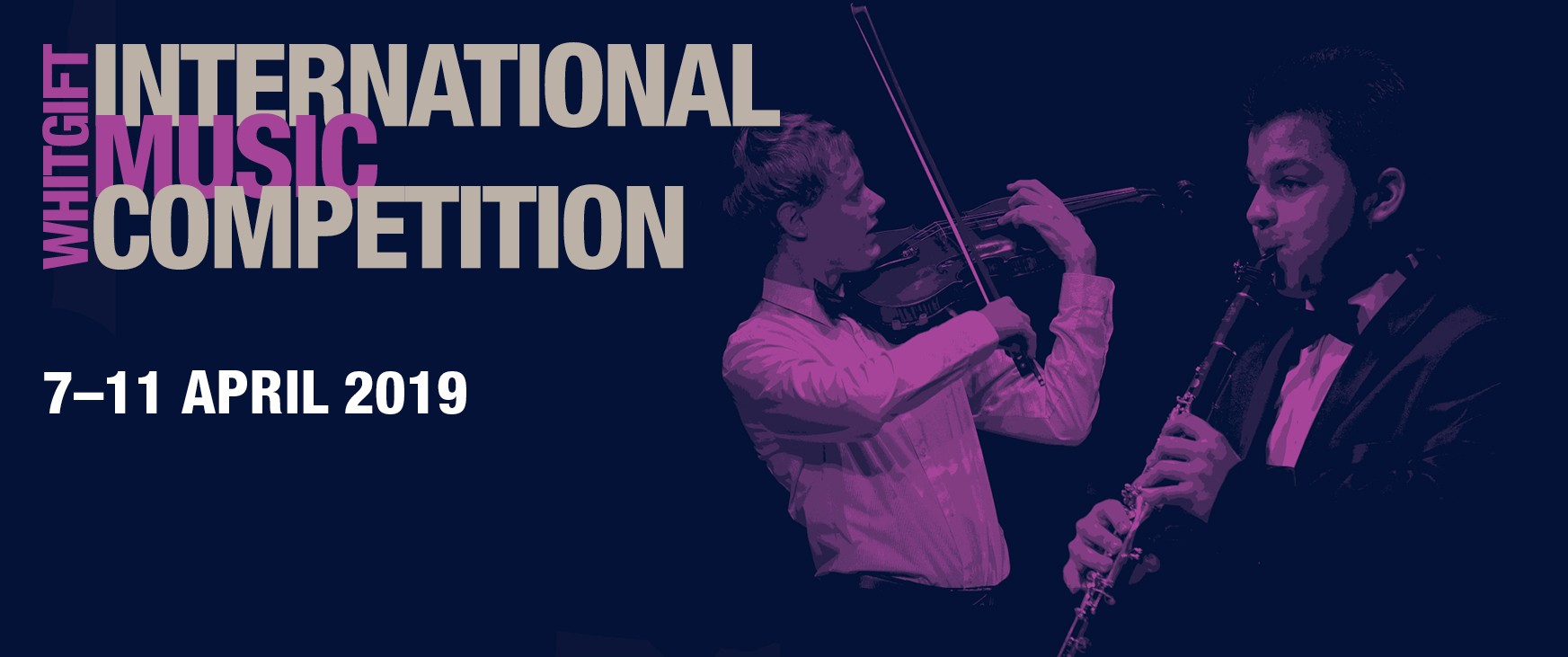
Every young, aspiring, instrumental soloist knows that she is up against the stiffest competition. Competitions have been known to launch these rare talents. Competitions also invariably leave exceptional talent behind. I have noticed repeatedly that my own preferences would sometimes go to a second or third place. If the Competition is important (ugly word there) enough, the second and third winners will get a fairly thorough launching too.
Rosanna Whitfield, Director of Music at Whitgift School, however, had a broader church in mind when she founded the Whitgift International Music Competition (WIMC) in 2013; it offered prizes not only for soloists, chamber music players and orchestral players (all of whom apply in category A) but also performers for the sheer joy of performing – known as amateurs in some circles – called category B. The B category may not be as stiff as the A in some respects, but it is arguably more difficult to be a winner in B. The As have a further complexity when such instruments as bassoon and trombone (both present this year) are clearly hoping for an orchestral posting: soloists are rare with both instruments.
Whitgift School has working collaborations with the Royal Philharmonic Orchestra, the London Mozart Players, and the Guildhall School of Music and Drama, each of which is represented in the School’s music staff as well as in the Competition jury.
Once a winner has experienced Whitgift Music Education, his country of origin tends to send other candidates. This year there were 5 from UK, 4 of whom are already at Whitgift. The other representations taking A and B together, are Montenegro 5, Moldova 4, Hong Kong 3, Mongolia 1, Belarus 1.
It would be beneficial to both the School and candidates if the School were able to engage in a relationship with Russia and China Mainland. Yes, I know that even the Royal Opera House has been refused the possibility of engaging singers or stage directors from Russia. This is partly because of the frosty relationship between the two countries. Interestingly, it also puts the School ahead of the ROH as it is a wealthy, well-organised, Independent School, not government sponsored and thus having a certain appeal to today’s Czars. The same reasoning applies to Mainland China. Most importantly, this is what the Arts are all about with their freedoms from moral or political dogma.
This is a report of some of the outstanding talent I heard on the morning of the semi-final round, 9 April 2019. Of those with little talent I shall remain silent, which is always the kindest thing to do. Nevertheless, I do want to begin with a condemnation, not of a student, but of an unnamed teacher.
The clarinet is by far and away the easiest of the wind instruments to play. When I lived in Italy I spent some fifteen years organising the preliminaries and finals of the European Union Youth Orchestra within Italy. At those preliminaries we often had a full day or more of hopeful clarinettists. Weber wrote two concertos for clarinet; the instrument was still being discovered in his time. Both concertos are works of great charm. But the First Concerto in E flat opens with the soloist making a leap of a tenth from the top to the bottom of the instrument, to be played forte. It is a suicide call for all but the most virtuoso players. Fortunately, there was only one candidate. It is irresponsible for a teacher to enter a pupil to play this piece. The intonation is always skew-whiff and sets the scene for the inevitable incompetence which follows. I much hope that this was not an obligatory piece for clarinettists. In that case, Ms Whitfield should get her firing squad out to deal with the problem!
The other bane of woodwind auditioning panels is the flute, which attracts almost as many talentless wonders as the clarinet. But here there is happier reportage. Mark Alexksandrovich Limin (16, Category B from Belarus) played the Blodek’s (Prague 1834 – 1874) who was a flautist himself, and audibly at one with his instrument. Mark is too, and he carried the audience away with his ease and charm. This is a musician who oozes music. He has excellent projection – not always easy with a flute – his sound carries unflinchingly, and his intonation is spot-on throughout. He has also learnt well how to communicate the instrument’s lyricism. A Category B quality which would surely work well in A, if he chose to. But if you do, Mark, please take care not to loose that intimacy with which you draw us into the music.
The trumpet and French Horn aside, it’s difficult to find concertos for brass instruments. Well Dimitru Isac (17, B, Moldova) has managed to find a composer, Blazhevich, who has composed at least six of them, because Dimitru played the sixth. I appreciate the appropriateness of the trombone in the William Tell Overture (Rossini’s pa was a trombonist, but no longer alive by the Paris premiere of that opera). Still, fifteen plus minutes of solo trombone can be somewhat daunting. So it is a double first for Dimitru Isac, who gripped my attention throughout his performance, conveying his own love affair with his instrument. He had some nuances of timbre which I have never heard before, or maybe only heard dimly in ill-remembered jazz performances. This is also the first time I have heard a trombonist who can make his instrument sing. SING for good heavens! That was a great joy. Forget about the lavatory sounds associated with rough players. Dimitri has a sense of phrase that you would have to invoke Kreisler to make a comparison. And please note he is a B applicant. Is he wooing his beloved with these sounds?
Tchaikovsky’s soul went into the writing of his violin concerto. And it goes into Bilegtugs Lut’s playing of it too. (14, A, Mongolia) As passion swells into anguish and calms into eternal peace, Lut never lets up for a second. He is there in every note, which for all the drama that comes through in his performance, there is also the astonishing feeling that the notes are playing themselves. Memorable.
All the best Spanish music comes from French composers. That is not so much an Irish-style witticism as a truism, if by Spanish you mean the gypsy Spanish. The great Italian violinist, Uto Ughi, who is blond and blue-eyed, once told me over dinner – but before we had really started on the wine! – that he had some gypsy blood in his veins. It certainly sounds like it when he plays Sarasate or Lalo.
Edoard Lalo (1823 – 1892) was born in Lille – as far North as you can go in France and so a long way from the Spanish border. But by far his most popular piece remains his Symphonie Espagnole. For violin and orchestra. You could say that it is phoney Spanish. And the same with Bizet’s Carmen where the zingaresque is served up through melodrama. And anyway don’t all Frenchmen work with a twinkle in the eye and tongue in cheek?
Whatever, this complex mix brought out wonders in the semi-final two violinists I want to consider. Stefan-Gabriel Luta (14, A, Moldova) is physically small in size and big in sound, in Lalo’s fifth movement of the Symphonie Espagnole. He looks and sounds phenomenal. Stefan is quite the child showman, and makes no apologies for it. On the contrary, his sound is lush, daring and adult. His ‘act’ is entirely in tune with Lalo’s so successfully being a Spanish gypsy.
And there is even better in the person of Justin Shun Lau (15, A, Hong Kong) who weaves a moving, rich lyricism into an even more daring, darker sexuality. A Uto Ughi in embryo. Lalo couldn’t get much better than this.
I don’t think I have heard a morning of music with such fluctuating standards, from the sublime to the cor-blimey. As explained, it would be inappropriate of me to be involved in reportage of the latter category.
Jack Buckley
